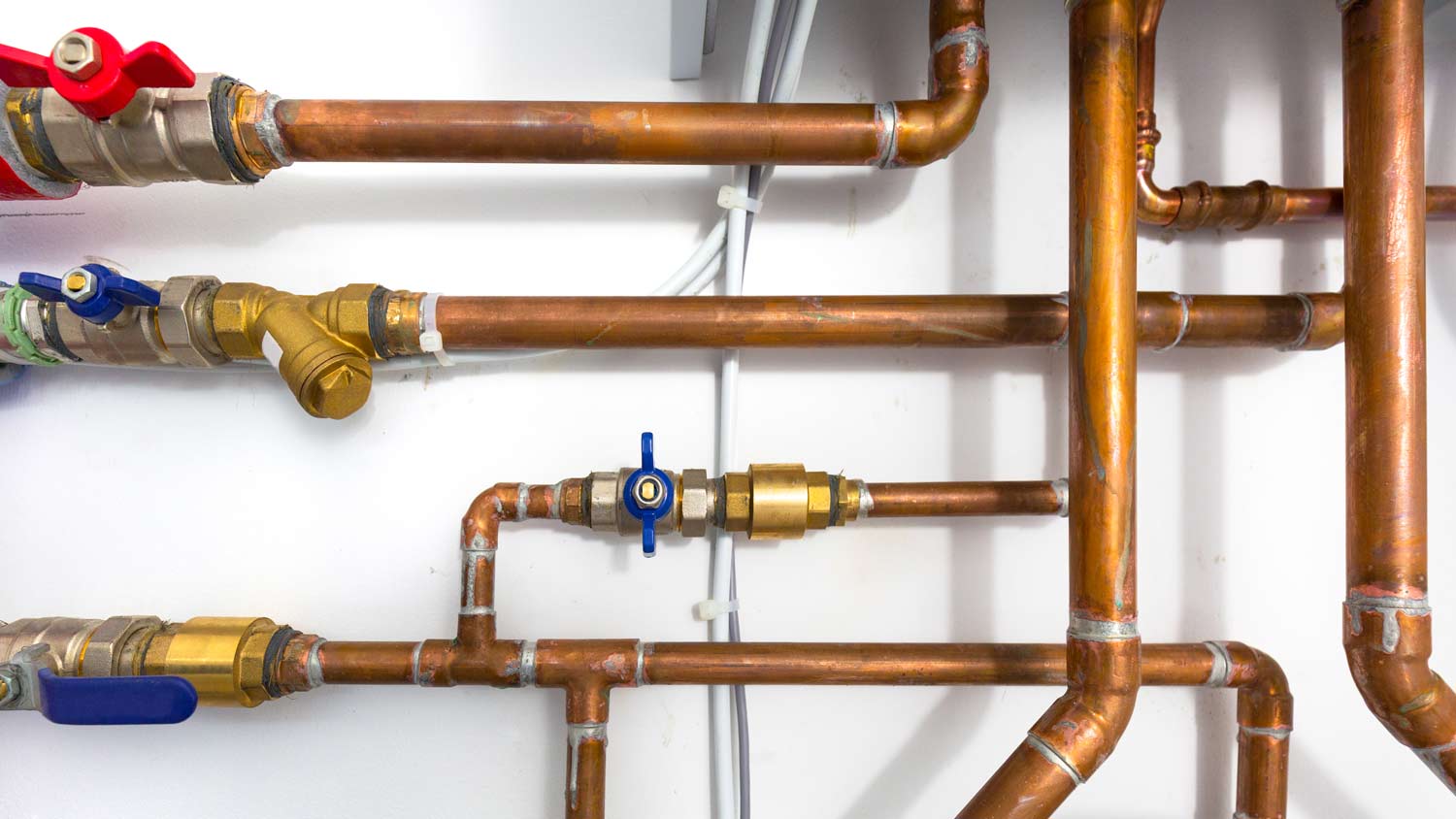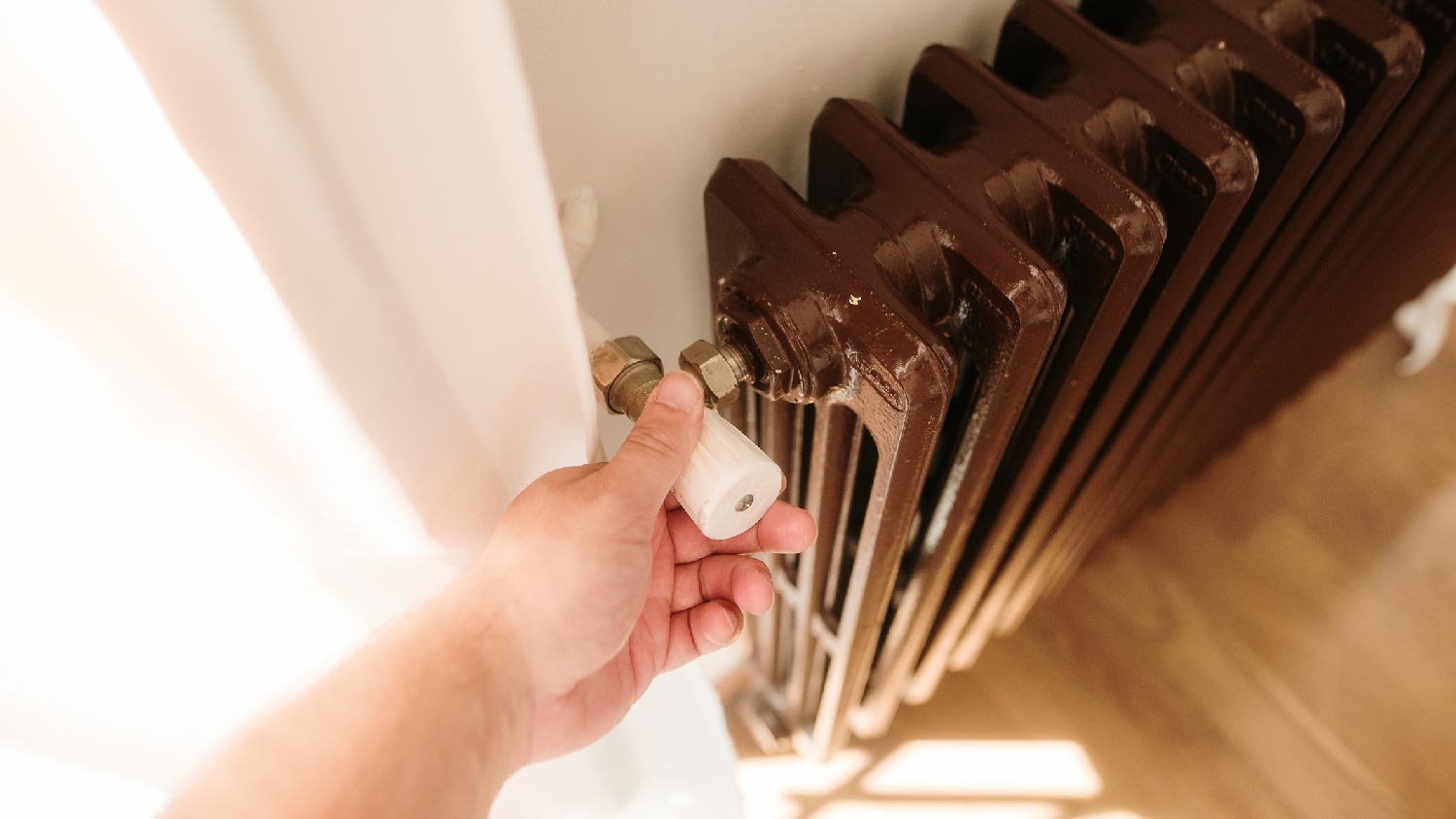
Find costs to repair a gas line and plan your budget based on the problem, from excavating for a new line to making a minor repair to an existing one.
The recent Harlem, N.Y., gas explosion prompted reminders of natural gas leak dangers. Read more about what to do if you detect a gas leak.


You might check your furnace and appliances for gas leaks once or twice a year, but what about those natural gas pipelines running through your property?
Every year, gas pipeline explosions cause an average of $74 million in commercial and residential property damage, according to the U.S. Department of Transportation Pipeline and Hazardous Materials Safety Administration.
For example, on March 12, a gas explosion demolished two buildings in Harlem, N.Y., killing eight people and injuring dozens of others, says Elisheva Zakheim, a spokeswoman for the New York City Fire Department. Investigators found a leaking gas main adjacent to the property, and they suspect a gas leak caused the explosion, according to the National Transportation Safety Board.
Because gas leaks can be deadly, make sure you understand what steps to take to protect yourself and your home from a gas explosion disaster.
To learn more about the safety of utility-owned gas pipelines in your area, contact your State Pipeline Safety Program, says Darin Burk, chairman of the National Association of Pipeline Safety Representatives. Program officials can tell you who’s responsible for overseeing and inspecting pipelines in your area, so you can request inspection reports required by state and federal law.
While federal law requires utility companies to take responsibility for their gas lines, the homeowner is responsible for the lines that run from the meter to the home, Burk says. Consider hiring a contractor to periodically inspect the safety of pipes that run from your home to remote locations such as spa heaters, Burk says. Expect to pay between $200 and $600 for an inspection, which includes tests such as measuring the pressure of the pipes to check for leaks.
More importantly, check your natural gas connections twice a year for signs of leaking, such as odor or hissing noises.
From 2004 to 2013, gas pipeline explosions killed 105 people and injured 425 others, according to the U.S. Department of Transportation Pipeline and Hazardous Materials Safety Administration.
The age of the pipeline typically dictates how often it needs to be inspected, but consult with your contractor for recommendations. During inspections, workers check for signs of corrosion or leaks.
If you notice any signs of leakage, leave your property and contact your local utility, Burk says. “The main emphasis is, that if someone detects something, they need to make the call,” he says, adding that you may notice something while taking a walk or running errands. “In many gas-related incident reports, it is found that someone smelled gas, but they failed to notify anyone.”
Other signs of gas pipe leakage include hissing noises, dirt kicking up into the air, or bubbles in puddles or toilets, he says. “Recent digging or construction combined with one of these signs, or obvious signs that a gas pipeline has been damaged, would warrant a 911 call,” Burk says.
Make sure you know where your gas lines run before excavating any areas of your property for improvements such as landscaping, decks or patios, and avoid digging near those lines. If you’re not sure where the gas lines run, call your local utility to find out. You can call the 811 Know Before You Dig hotline to ask the utility to locate and mark your gas lines free of charge.
Use the National Pipeline Mapping System to determine whether you live near a gas pipeline.
Leave the area immediately and call your natural gas utility. If you find a gas leak, call the utility company and request an inspector or technician to evaluate the problem. If you can’t reach the utility, or if your home uses natural gas supplied by a tank, call your local fire department.
Do not operate any electrical device or use open flames. A charge or electrical spark can ignite the leaking gas. Don’t operate devices such as light switches, garage doors or electronics. Also, don’t smoke or use an open flame, matches or lighters.
Do not try to find the source of the leak. If you suspect a leak, flammable gas may be entering your home and causing a potential fire risk. Evacuate the area and call an experienced professional instead of trying to find the source of the leak yourself.
Do not try to shut off the gas supply or gas-fired appliances. Doing so could cause a spark that ignites the gas leak, or damage pipes and appliances.
Do not start your car. A hot exhaust or spark from a vehicle can ignite a gas leak.
Fix the leak. Once the utility company, fire department or professional stops the gas leak, hire a qualified professional to fix the leak. The best professional depends on the type of leak:
• Pipe-based leaks: Consider hiring a licensed plumber that offers gas supply pipe services.
• Appliance leaks: Contact a large-appliance repair specialist.
• Heating equipment leaks: Consider hiring a licensed HVAC contractor.
Have you ever had a gas leak in your home? Tell us about your experiences in the comments below.
Editor's note: This is an updated version of an article that was originally posted on March 25, 2013.
From average costs to expert advice, get all the answers you need to get your job done.

Find costs to repair a gas line and plan your budget based on the problem, from excavating for a new line to making a minor repair to an existing one.

Whether it's time for pipe replacement or to hook up the range of your dreams, gas line installation cost is an important line in your budget. Let's take a look.

Installing a gas line is a job for a licensed plumbing professional. Let’s take a look at who installs gas lines and how much you can expect to pay.

Trying to decide which home gas pipe size fits? We look into home gas pipes, standard sizes, how to measure, and factors that will influence your choice.

As temperatures plummet, you know to keep an eye out for frozen water pipes, but can gas lines freeze? Find out the answer and how to prevent major problems.
Is a homeowner liable if a contractor hits a gas line while digging? Not if you or your contractor have the gas line marked before digging.